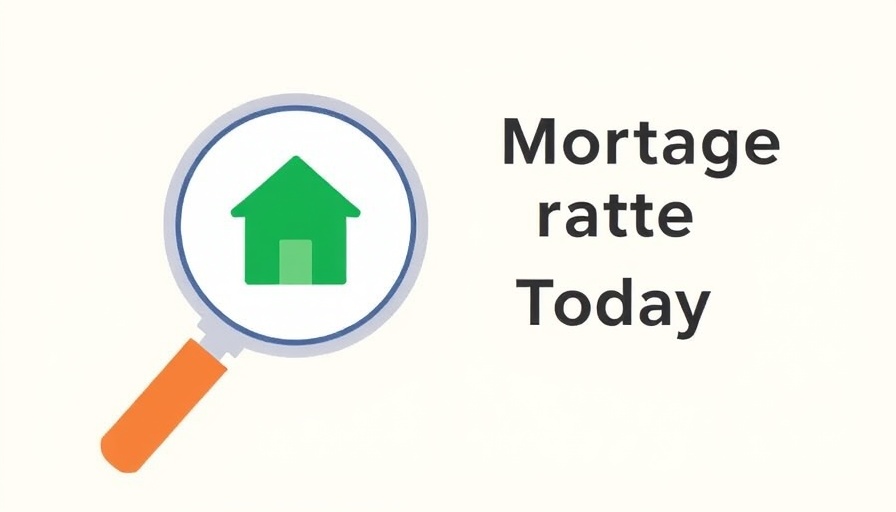
Understanding the Value of Home Equity in Retirement
For retired homeowners, the concept of home equity offers a valuable opportunity. Since 1995, the rise in home values has been staggering, turning homes that used to cost an average of $114,600 into properties worth nearly $400,000 today. For small business owners and managers looking for financial flexibility, utilizing this equity can provide a necessary lifeline.
What Is a HELOC and How Does It Work?
A Home Equity Line of Credit (HELOC) functions as a revolving line of credit, allowing homeowners to borrow against the equity in their home. This loan type can be particularly useful for retirees who have built substantial equity over the years. With a HELOC, homeowners can access funds as needed while retaining the ability to pay them back based on their financial situation.
Is a HELOC Right for You in Retirement?
As a small business owner or manager, the decision to take out a HELOC should not be taken lightly. While it can provide cash for various needs—from medical bills to investing in opportunities—there are significant considerations. The potential for fluctuating interest rates might complicate repayment strategies. Before proceeding with a HELOC, it's essential to evaluate one's financial situation, including any existing debts and potential upcoming expenses.
Potential Advantages of a HELOC
One of the most appealing aspects of a HELOC is its flexibility. Funds can be drawn whenever necessary, allowing for immediate access to cash without grand commitment. This can be particularly advantageous for retirees managing unpredictable financial situations, as it allows them to respond swiftly to emergencies or opportunities.
The Risks Involved: What to Consider
Despite these benefits, HELOCs come with risks. The most significant potential drawback is the fluctuations in interest rates that can make repayment more expensive than planned. Additionally, drawing too heavily from their equity can leave retirees vulnerable, especially if property values decline. Ensuring that the spending against the HELOC has a tangible benefit is crucial.
Alternatives to Consider
While HELOCs can be a good tool, they aren't the only option for retired homeowners. Reverse mortgages might be a suitable alternative for generating cash from home equity without monthly repayments. Selling the home or renting out a portion can also yield financial benefits, each with its own set of advantages and drawbacks.
Deciding the Best Financial Path
As you weigh the pros and cons of utilizing a HELOC, consider your broader financial landscape. Consulting with a financial advisor can provide insights tailored to your unique situation, ensuring that all aspects of the decision are fully understood.
The Bottom Line: Making Informed Financial Decisions
For small business owners and managers nearing the retirement phase, knowing your options is key. A HELOC could serve as a valuable financial resource when approached cautiously and strategically. Always conduct thorough research and consult with financial experts to evaluate if tapping into your home equity is the right move for your retirement.
As you navigate the complexities of retirement finance, consider all of your options carefully. Whether it’s exploring HELOCs or examining alternative methods to access cash, being informed will empower you to make the best decisions for your future financial health.
 Add Row
Add Row  Add
Add 




Write A Comment